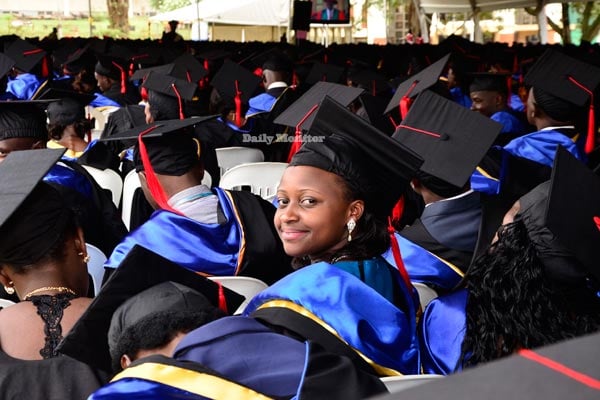
Unemployment is higher among the females where two out of three women aged 15 to 35 years are in precarious working conditions, getting low pay, with poor job security. PHOTO/FILE
|Prosper
Prime
Why female youth prefer self employment
What you need to know:
Unemployment is higher among the females where two out of three women aged 15 to 35 years are in precarious working conditions, getting low pay, with poor job security.
“Dignified work is any work in proportion to your educational qualification without trouble and uncertainty in it,” a youth respondent said.
However, dignified work seems to elude many youth and with the evolving times, self-employment has become more attractive to youths across Africa more than ever. Previously, the dynamics were not so.
While the realities differ from country to country, it is undeniable that young people continue to face the greatest challenges of unemployment, underemployment and work informality, which exposes them to uncertain futures.
The recent Covid-19 pandemic worsened matters, dimming opportunities for dignified and fulfilling work for young Africans.
According to a study, Informality, growth and development in Africa, rural areas were most hit as trends in the last decade indicating an increasing pattern of urban informality.
Unemployment rate
Mr Joel Othieno, the programme officer at Partnership for African Social and Governance Research (PASGR) says according to the International Labour Organisation, while Africa’s youth unemployment is below the global average (12.7 percent) compared to 14.9 percent globally, there is a substantial difference across countries.
“The low unemployment rates, especially in sub-Saharan Africa are partially due to informality and underemployment. Additionally, the incorporation of the voices of youth is missing in the discussion about aspirations and livelihoods,” he said.
Adding, “Unemployment is higher among the females where two out of three women aged 15 to 35 years are in precarious working conditions, getting low pay, with poor job security.”
It is these abysmal statistics that prompted PASGR, in partnership with Mastercard Foundation to engage in research that started in 2019, done in Uganda, Kenya, Senegal and Ghana. Titled, Africa Youth Aspirations and Resilience, the research’s principal investigator, Prof Victoria Flavia Namuggala said they focused on youth aspirations, resilience and then their notions and adaptations before, during and after the Covid-19 pandemic.
Research results in Uganda
“70 percent of youth respondents [women] wanted to be self-employed. Very few desired employment for reasons such as not having the requirements and not desiring to be instructed or work under rules. On the contrary, the male respondents were willing to be employed and do business,” she said.
Opposed to prevailing stereotypes portraying young people as lazy, careless, and unwilling to take responsibility for their lives, the study showed that the youth are creative, hardworking and constantly engaging in pursuing their imagined futures.
“Unlike narratives such as youths waiting for hand-me-downs, we found that most youth were looking for credit to start or invest in their businesses,” Prof Namuggala said.
The research also found that more youth had to relocate to villages to regroup owing to Covid-19 as many lost work. These, according to the research findings, continue to suffer setbacks such as social and cultural beliefs such as early marriages.
“Uganda is at 24 percent regarding early marriages. This figure shows that more must be done because if a girl gets married at say, 14, they cannot invest in themselves or make much commercial contribution. That is a sure cause of the widening gender gap as no one pays their wife for domestic chores, which will dominate these girls’ lives,” she said.
There are also climate shocks owing to climate change, which affects agriculture, a mainstay activity for most youth.
“Many respondents complained of poor yields. The very heavy rains have also affected the road condition, which makes product transportation tough and very costly,” Professor Namuggala said.
Informal jobs
With most Ugandan youth in the informal sector, she says, their major challenge is that it is unregulated hence a lot of harassment, exploitation and abuse.

A woman sells apples in Kampala. Self-employment has become more attractive to youth across Africa. PHOTO/MICHAEL KAKUMIRIZI
“Most youth described dignified work as one with commensurate pay, without health hazards, respectful of their religion and culture, as well as free of gender biases. However, being in the informal sector, dignified work is far from possible and it also comes with job insecurity,” she said.
Disruption
Mr Francis Mondo Kyateka, the commissioner in charge of youth at the Ministry of Gender, Labour and Social Development was elated by the report findings agreeing that the Covid- 19 era caused unprecedented employment disruption.
“I am glad that young people want to be self-employed. It is the right way to go because the jobs being created by the private and public sectors are not enough. Therefore, if the youth can find solace in creating jobs for themselves, it is commendable,” he said.
He wished the report had also looked out for non-traditional employment scenarios such as the creative industry, saying that UNESCO established that this is the fastest-growing industry. “It employs several young people causing a job creation ripple effect,” he says.
While most youth were pushed to the village by the Covid-19 lockdown, against their will, one respondent says while he detested returning to the village, he does not regret currently engaging in agriculture.
That made the commissioner glad saying every Ugandan needs to have one foot in urban areas and another in the rural areas.
“We need increased food production for sustained food security and it must be produced by people,” he said.
With youth desiring increased mechanisation in agriculture, Mr Kyateka is pleased as it aligns with the agro-industrialisation plan in the National Development Plan.
He also pledged that the government would take on the research recommendations to help the younger population become more productive.





